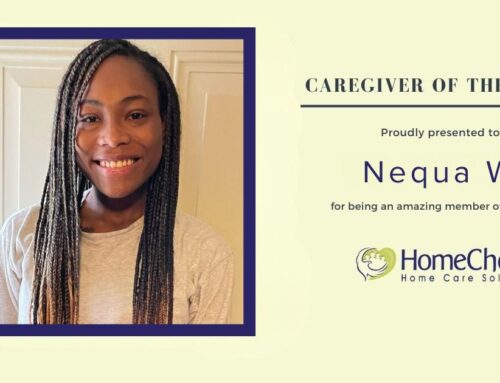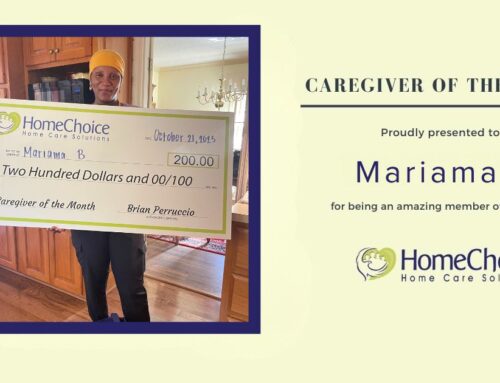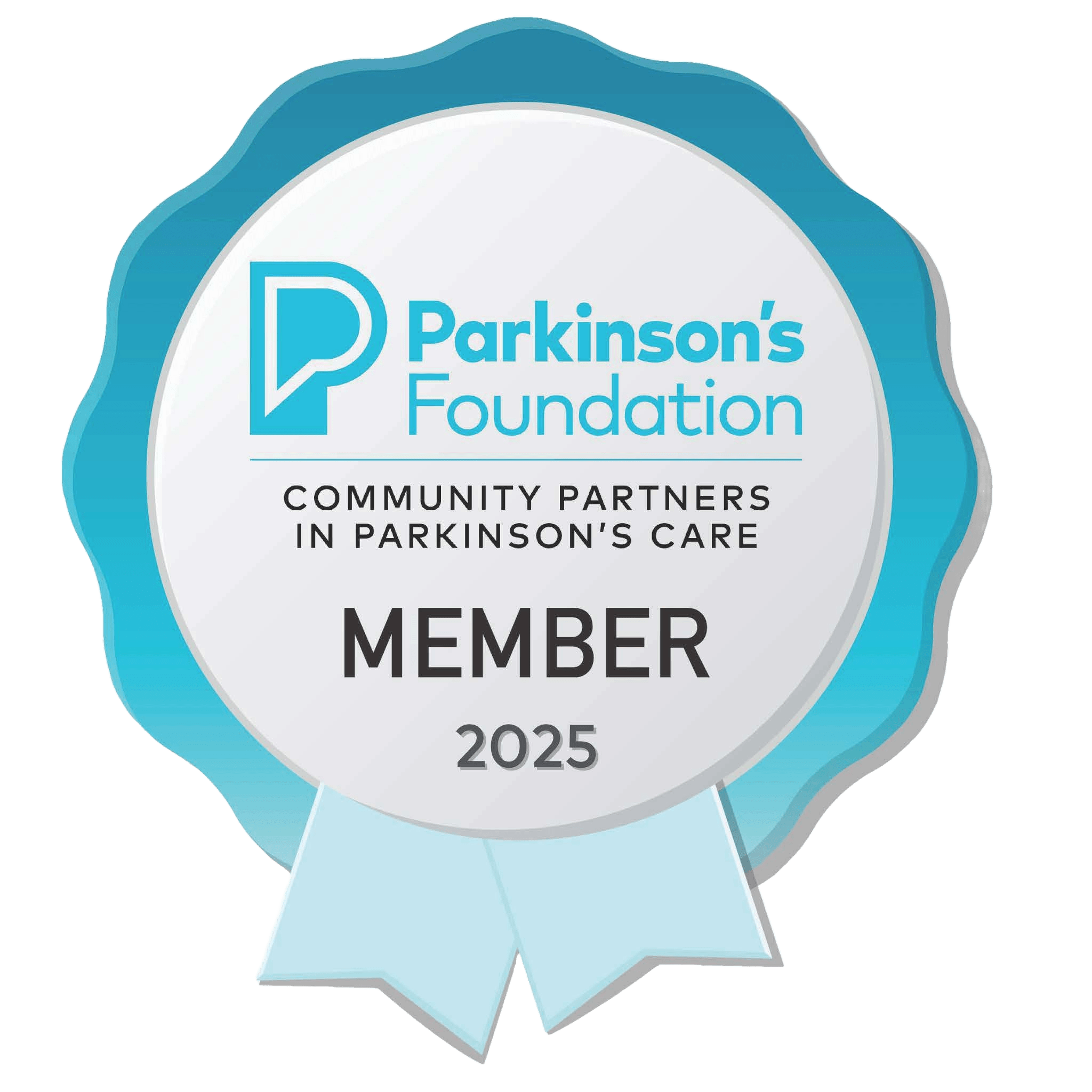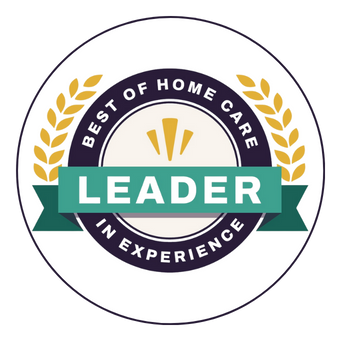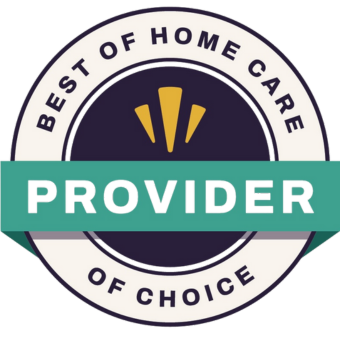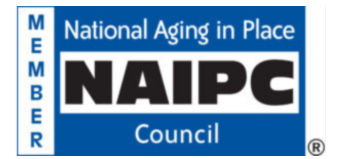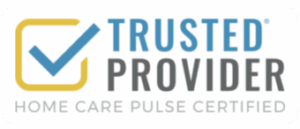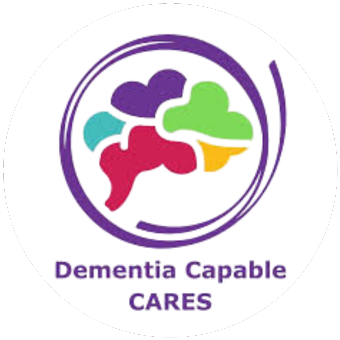Effective communication is the cornerstone of any strong relationship. For an in-home caregiver, this truth is even more profound. The bond you build with the seniors you support is founded on trust, and that trust is nurtured through every conversation, every shared story, and every moment of understanding. It’s not just about what you say; it’s about how you listen, empathize, and show respect.
When you step into a client’s home, you’re entering their personal space, filled with memories and established routines. Your role in this caregiving situation is to provide support that enhances their quality of life, and that begins with creating an environment of emotional safety. This guide offers practical strategies and senior communication tips to help you build a trusting, supportive, and lasting connection with your clients. If you’re interested in exploring caregiving careers in Raleigh or Durham, Wake County, Johnston County, Wake Forest, Chapel Hill, and North Carolina, mastering these skills will set you on a path to success.
The Three Pillars of Trust-Based Communication
Developing trust isn’t a single action but a continuous practice. It rests on three core pillars: Clarity, Compassion, and Consistency. By focusing on these areas, you can create a comfortable environment where older adults feel truly understood and valued.
Pillar 1: Clarity in Conversation
Misunderstandings can create frustration and anxiety for seniors, especially those managing conditions like dementia or memory loss. Your goal is to ensure your message is received without causing stress.
- Use Simple, Direct Language: Avoid medical jargon or complex sentences, especially when discussing personal care or home care routines. Instead, use straightforward instructions and simple language. Clear communication helps everyone involved in the caregiving situation—clients, family caregivers, and other family members alike.
- Confirm Understanding: After explaining something important, like changes to daily living or a new medication, gently check for understanding: “Could you tell me when you’ll take this pill?” This guide highlights how crucial this is for caregiver-provider communication.
- Active listening: It means not only listening to the words your loved one says, but also making an effort to truly hear their feelings, concerns, and what may be left unsaid. Pay close attention to their expressions and refusals, and reflect on what you heard to confirm your understanding.
- Minimize Distractions: When you need to have an important conversation, create a comfortable, calm environment in your loved one’s home or wherever care is provided. Minimizing distractions ensures focused, meaningful exchanges and shows respect for the elderly person’s time and needs.
Pillar 2: Leading with Compassion
Compassion is the emotional heartbeat of home care. It’s the ability to connect with what someone is feeling and respond with kindness. Consider the following examples to best provide assistance to the one you’re caring for:
- Practice Empathy: Try to see the world from your client’s perspective. Changes related to aging, loss of independence, chronic illness, or dementia can be overwhelming. Acknowledging these challenges with a caring attitude offers comfort and reassurance and brings peace into their everyday life.
- Be Patient and Present: Seniors may move or speak more slowly. Never rush them during daily activities or conversations about their specific needs. Sit down when you talk, make sincere eye contact, listen actively, and be present. This small gesture creates comfort and demonstrates a professional level of care.
- Listen to Life Stories: Every older adult in your care brings a rich history shaped by family, friends, and community. Asking about their past creates meaningful connections, supports a sense of culture and belonging, and can provide insight for more person-centered care.
Pillar 3: Consistency in Action
Every senior has a rich history, unique preferences related to their culture, and established routines. Supporting their individuality shows you see them as a whole person, not just a set of personal care needs. Trust is cemented over time through reliable and predictable actions. Your consistency shows that you are dependable and that they are safe in your care.
- Honor Their Routines: A predictable schedule can be incredibly comforting. Learn their preferences—when they like to wake up, eat meals, or connect with friends—and stick to them.
- Involve Them in Choices: Whenever possible, offer choices. Asking, “Would you prefer to walk before or after lunch?” reinforces their autonomy and dignity.
- Engage with Their History: Show genuine interest in their past. Creating a comfortable and familiar environment in their dwelling can help them feel more secure.
Checklist for Building Trust Daily
✅Greet with a warm smile to set a positive tone.
✅ Ask open-ended questions to encourage conversation.
✅ Observe nonverbal cues like facial expressions and body language. The CMS offers guidance on understanding nonverbal signals in care settings.
✅ Offer choices to reinforce their independence.
✅ Don’t take things personally, especially with clients who have cognitive conditions like Alzheimer’s disease. The Alzheimer’s Association provides excellent resources on managing difficult conversations and behaviors.
Advanced Communication: Families, Sensitive Topics, and FAQs
Professional caregivers must also communicate effectively with other family members and navigate difficult conversations with grace. Working as a team with family members and other care providers is essential to ensure the best outcomes for the senior.
Communicating with the Family Circle
You are a vital link between your client and their loved ones. Maintaining open and clear communication is essential for providing consistent home care services in any city. Keep a log to note any changes in health or mood, and share updates with the designated family contact. This ensures everyone is working toward the same goal: the well-being of their aging loved one.
Frequently Asked Questions for Senior Care Caregivers
Q: How do I handle disagreements with a client who is resistant to care?
A: The key is to respond calmly and seek to understand the reason for their resistance. You can say, “I see this is upsetting. Let’s take a break and find a solution together.” Prioritize their feeling of control and peace. Your goal is to develop a partnership, not to win an argument. Keep in mind that other factors, such as health changes or communication barriers, may influence their response.
Q: What is the best way to discuss sensitive topics like declining health?
A: Choose a quiet, private moment. Talk with gentleness and honesty, and listen without judgment. Focus on the older adults’ specific needs and suggest involving the family in the conversation. Your role is to provide support and companionship, not to have all the solutions.
Q: What are some ways to engage clients who have limited communication?
A: For older adults, reading aloud—such as books, poems, or Bible verses—can be a meaningful way to connect. You can also sort music or reading materials to match the client’s mood and preferences. Using video as a tool can help demonstrate effective communication strategies for caregivers.
Q: What role does nonverbal communication play in senior care?
A: Nonverbal communication, such as using your hands for gentle touch or reassurance, is vital—especially when verbal skills are limited or lost. Factors like health literacy, cultural beliefs, and individual preferences can influence the caregiving relationship and communication effectiveness.
Q: What types of job opportunities are available in caregiving?
A: From companion roles to skilled nursing care, the opportunities are vast. Positions can be part-time, full-time, live-in, or hourly, offering flexibility for different lifestyles. The variety of positions means there are opportunities for people with different experience levels and interests. For those desiring more technical training, CNA’s (Certified Nursing Assistants) across the country receive training to assist with more complex daily living activities and basic medical tasks.
Start a Meaningful Career in Raleigh
At HomeChoice Home Care Solutions, we believe that mastering these communication skills will not only make you a more effective in-home caregiver, but will bring fulfillment to your career. Whether assisting with personal care, supporting an aging loved one with dementia, or helping older adults maintain independence, your role as a companion makes a true impact.
Ready to make a difference? If you are interested in becoming part of a professional caregiving team that values integrity and trust, join us now! Our offices in Raleigh and Durham, Wake County, Johnston County, Wake Forest, Chapel Hill and North Carolina are dedicated to supporting clients and caregivers alike. Explore our services to see how we craft a circle of care for aging seniors, including Companionship Care, Personal Care, and Respite Care.


